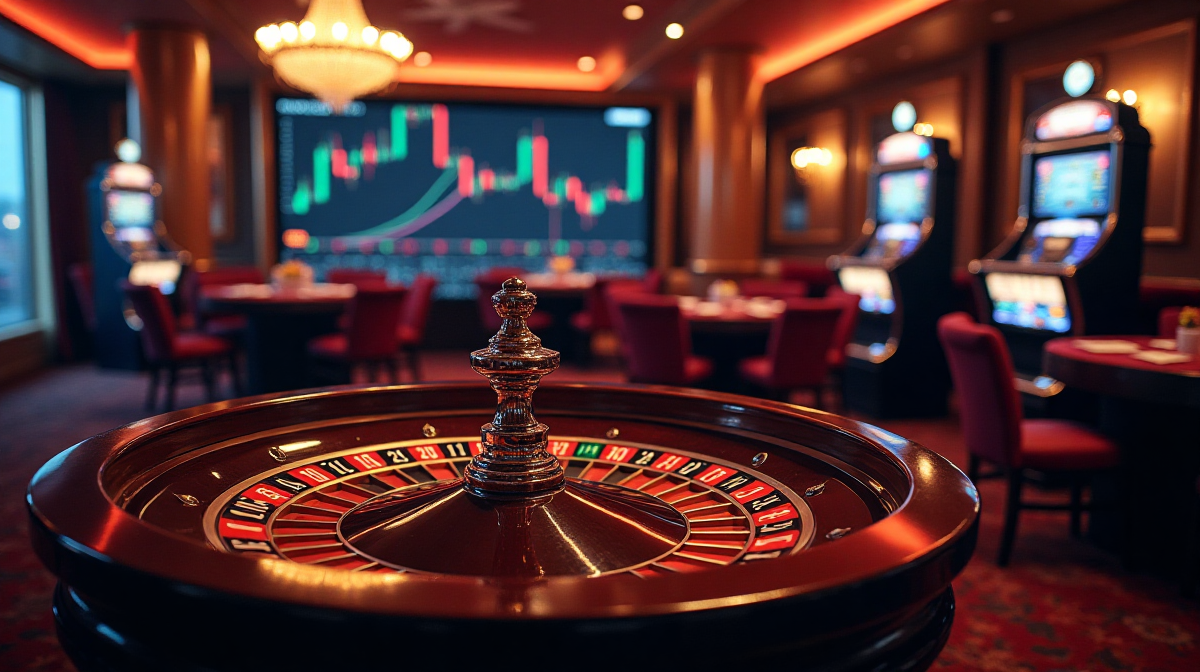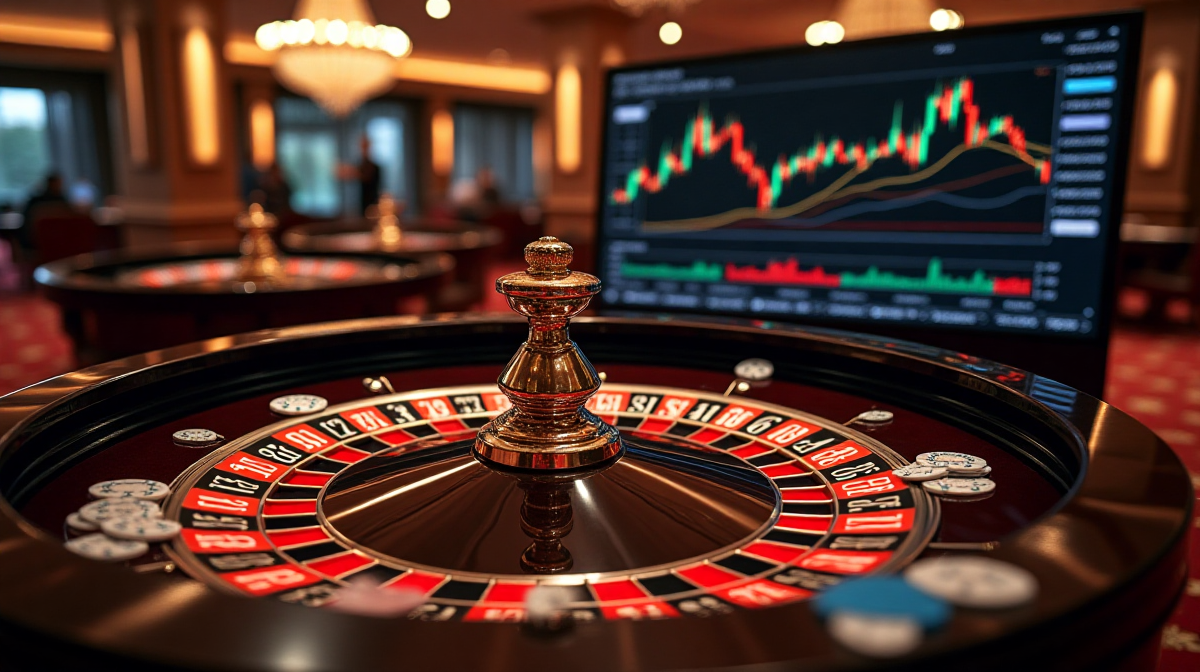Bet Number Luck: Decode Your Winning Chances!
The world of betting is filled with rituals, superstitions, and a deep-seated belief in luck. Among these, the concept of “lucky numbers” holds a powerful sway over many. From choosing specific digits in the lottery to favoring certain combinations in sports bets, the allure of a number supposedly holding the key to victory is undeniable. But what’s the real story behind this phenomenon? And can selecting a “lucky” bet number truly improve your odds? This article delves into the psychology, history, statistics, and responsible gambling practices surrounding the captivating world of lucky numbers.
The Psychological Pull of Number-Based Beliefs
Humans are pattern-seeking creatures. We naturally seek order in chaos, and numbers represent a tangible form of order. This inherent tendency leads us to assign meaning to numbers, perceiving them as auspicious or inauspicious based on personal experiences, cultural influences, or simply gut feeling. The appeal of a lucky number offers a sense of control in an inherently unpredictable world. Even casually checking an 1xbet bet slip number check can become a ritual linked to hoping for a win.
Briefly Defining Lucky Numbers – Personal vs. Cultural
A “lucky number” can be deeply personal – a birthday, an anniversary, or a number associated with a cherished memory. Conversely, cultural beliefs dictate certain numbers as universally lucky or unlucky. These culturally significant numbers are often woven into traditions and folklore, impacting choices in various aspects of life, including gambling.

Setting Expectations: Can Numbers Really Improve Your Odds?
While the belief in lucky numbers can add excitement and a personal touch to betting, it's crucial to understand that in games of chance, each number has an equal probability of being drawn or occurring. There’s no statistical evidence to suggest that a lucky number inherently increases your chances of winning. However, the psychological benefit of feeling more confident and engaged shouldn’t be dismissed entirely.
Numerology and its Impact on Gambling
Numerology, the belief in the mystical significance of numbers, has a long history intertwined with gambling. Practitioners assign specific meanings to numbers and use these interpretations to predict future events, including lottery results or sporting outcomes. While lacking scientific basis, numerology continues to influence the choices of some bettors.
Lucky Numbers Across Different Cultures
The perception of lucky numbers varies dramatically across cultures. In Western cultures, 7 is often considered lucky, stemming from religious and historical associations. In Chinese culture, 8 is highly auspicious, symbolizing wealth and prosperity. These cultural preferences can influence betting choices, particularly among individuals deeply rooted in these traditions.
Historical Examples of Belief in Lucky Numbers Influencing Bets
Throughout history, there are countless anecdotes of individuals attributing wins to their lucky numbers. Stories abound of lottery winners consistently choosing the same numbers for years, or gamblers placing large bets on specific digits based on personal beliefs. While these stories are compelling, they are often anecdotal and don’t represent statistically significant trends.
Superstitions Related to Specific Numbers in Various Games
Specific games often develop their own unique superstitions related to numbers. In roulette, some players avoid certain number sequences, while in lottery, others favor numbers that haven’t been drawn recently. These superstitions, while irrational, can add an element of ritual and excitement to the betting experience. Interestingly, even looking for an ilot bet phone number for assistance can sometimes be linked to a hopeful feeling.
What are Hot & Cold Numbers? Explanation and Data Sourcing.
“Hot” numbers are those that have appeared frequently in recent draws, while “cold” numbers are those that have appeared infrequently. Gamblers often analyze past data to identify these trends, hoping to predict future outcomes. This data can be sourced from lottery websites, statistical databases, or specialized betting tools.
The Gambler's Fallacy: Why Repeating Patterns Don’t Guarantee Future Results
The gambler's fallacy is the mistaken belief that if something happens more frequently than normal during a period, it will happen less frequently in the future (or vice versa). This is a crucial concept to understand, as past results have no bearing on future outcomes in games of chance. Just because a number has been drawn frequently doesn't mean it's due to appear less often.
Analyzing Past Data: Is There Any Statistical Anomaly Worth Exploring?
While the gambler's fallacy holds true, analyzing past data can sometimes reveal subtle statistical anomalies. However, these anomalies are often random fluctuations and shouldn’t be interpreted as predictive indicators. It’s vital to approach data analysis with skepticism and recognize the limitations of statistical modeling in games of chance.
Tools and Resources for Tracking Number Frequencies
Numerous websites and software programs offer tools for tracking number frequencies in various lottery games and other betting formats. These resources can be helpful for identifying trends, but it’s essential to remember that past performance is not indicative of future results.
Utilizing Birthdays, Anniversaries, and Significant Dates
Many bettors choose numbers based on personal significance – birthdays, anniversaries, or other important dates. This approach adds a personal touch to the betting experience and can enhance the emotional investment in the outcome. A quick glance at a game like dogs playing poker can even spark a memory to choose a number.
Creating Number Combinations Based on Personal Meaning
Beyond individual dates, some bettors create number combinations based on personal symbolism or meaningful patterns. This process can be a creative and engaging way to personalize the betting experience.
The Psychology of Choosing Your Own Numbers: Feeling in Control
Choosing your own numbers provides a sense of control and agency in a game of chance. This feeling of control can be psychologically beneficial, even if it doesn’t actually improve your odds.

The Potential Downside of Over-Reliance on Personal Numbers
Over-reliance on personal numbers can lead to biased betting strategies and potentially irrational decision-making. It's important to maintain a balanced perspective and avoid letting emotional attachments cloud your judgment.
Lucky Numbers in Lottery: Strategies & Pitfalls
In the lottery, strategies involving lucky numbers range from consistently choosing the same numbers to selecting a variety of combinations. The primary pitfall is the belief that past patterns can predict future outcomes. Quick Pick options offer a statistically unbiased approach, while self-selected numbers are driven by personal preference.
Lucky Numbers in Roulette: Betting Systems & Probability
Roulette offers a wide range of betting options, and some players employ betting systems based on lucky numbers or perceived trends. However, the house edge in roulette remains constant, regardless of the betting strategy used.
Lucky Numbers in Sports Betting: Finding Patterns & Avoiding Bias
Identifying patterns in sports betting is complex. While statistical analysis can be valuable, attributing success solely to lucky numbers is misleading. Avoiding confirmation bias – the tendency to interpret information in a way that confirms pre-existing beliefs – is crucial. Think of a game of full house poker – skill and strategy are paramount, not pure luck.
Lucky Numbers in Horse Racing/Greyhound Racing: Analyzing Historical Trends
Analyzing historical trends in horse or greyhound racing can provide insights into a horse or dog’s performance, but attributing success to lucky numbers is unlikely. Factors such as track conditions, jockey skill, and animal fitness are far more influential.
Understanding the House Edge and Probability
The house edge represents the mathematical advantage the casino or betting operator has over the player. Understanding this concept is crucial for realistic expectations and responsible gambling.
Managing Your Bankroll and Setting Limits
Effective bankroll management is essential for responsible gambling. Setting limits on your spending and sticking to them can help prevent financial losses and maintain control.
Avoiding Chasing Losses Based on “Lucky” Beliefs
Chasing losses – attempting to recoup previous losses by increasing your bets – is a dangerous behavior that can quickly escalate into problem gambling. Avoid making impulsive decisions based on the belief that your lucky number will eventually bring a win.
When to Seek Help: Recognizing Problem Gambling
If you find yourself spending increasing amounts of time and money on betting, experiencing negative consequences as a result, or feeling unable to control your gambling behavior, it's important to seek help. Numerous resources are available to support individuals struggling with problem gambling.
Recap: Lucky Numbers - A Blend of Psychology & Chance
Lucky numbers represent a fascinating intersection of psychology and chance. While they offer a sense of control and personal connection to the betting experience, they don’t alter the underlying probabilities of winning.
The Importance of Responsible Betting
Responsible betting involves understanding the risks, setting limits, and avoiding impulsive decisions. It’s about enjoying the entertainment value of betting without jeopardizing your financial well-being.
Final Thoughts - Enjoy the Game!
Ultimately, betting should be viewed as a form of entertainment. Embrace the excitement, enjoy the game, and remember to gamble responsibly. While a lucky bet number might add a touch of fun, it's skill, strategy, and a healthy dose of realism that will truly define your success.

